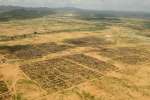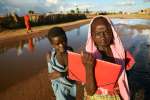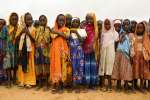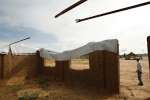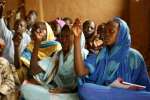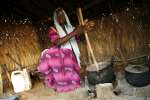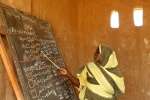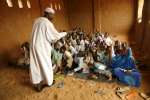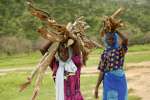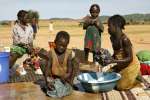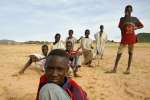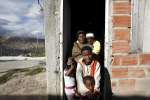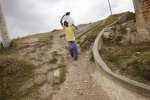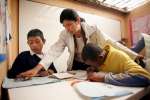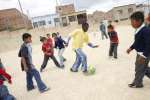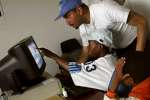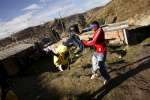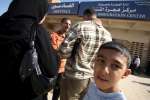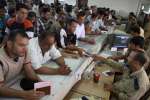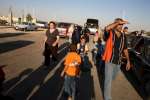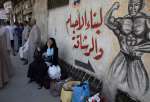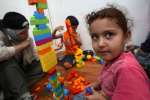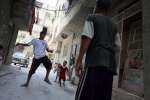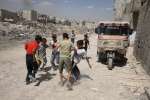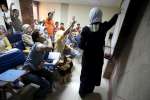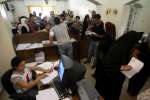- Text size
 |
|  |
|  |
| 
- عربي
16 Days of Activism: UNHCR recognizes importance of access to safe education
News Stories, 25 November 2015
GENEVA, Nov 25 (UNHCR) – UN High Commissioner for Refugees António Guterres on Wednesday acknowledged the importance of providing access to safe education to enable children and young people to learn and develop critical skills, and to build their capacities and confidence.
His comments came ahead of a ceremony in Geneva to mark the annual 16 Days of Activism against Sexual and Gender-Based Violence campaign. This year, UNHCR has adopted the global theme, "Peace in the Home to Peace in the World: Make Education Safe for All" and has placed a special focus on young people.
Sexual and gender-based violence, or SGBV, is a violation of human rights and has a long-lasting, detrimental impact on young people's physical and psychological well-being. It invariably has adverse effects on their access to education, as well as their attendance and performance in school – although schools themselves, unfortunately, often present very specific SGBV risks to children and young people, Guterres said.
Some estimates place the number of boys and girls who experience school-related violence, including sexual or verbal harassment, non-consensual touching, and rape, as high as 246 million and evidence suggests that girls – especially those with disabilities – are at even greater risk of sexual violence, harassment, and exploitation.
"Ensuring that learning environments are designed and equipped to prevent and respond to SGBV, including exploitation and abuse in and around schools, is an essential step to meeting prevention goals. Young refugees themselves can make a valuable contribution in preventing SGBV," Guterres said in an address to UNHCR staff.
"For example, UNHCR is supporting approaches where refugees enrolled in tertiary education do not only motivate refugee children to pursue their primary and secondary education, but also play an important role in sensitizing their communities about healthy relationships between learners, teachers and families," he added.
As part of the 16 Days of Activism campaign, UNHCR offices around the world have engaged with children and young people, including through informal discussions and structured activities, and sought their feedback on how to make safe education a reality for all.
The materials that UN refugee agency staff around the world have collected so far send a resounding and clear message: young people value safe education and want all forms of SGBV to end. A selection of these messages – such as drawings and stories – will be displayed at Headquarters during the campaign.
"I am impressed by how actively engaged UNHCR staff have already been in this important campaign, and I applaud the wide range of activities that have been planned to raise awareness about safe education," Guterres said.
Given that access to safe and quality education can have a long-lasting positive impact on the lives of children and young people, their families and their communities, Guterres said the refugee agency must continue to work closely with all relevant actors – and especially children and young people – to ensure that we end SGBV in all its forms.
Among refugees advocating for safe education is Syrian teenager Muzon, who speaks out on the need for displaced children in Jordan to continue their schooling. You can read her story here
